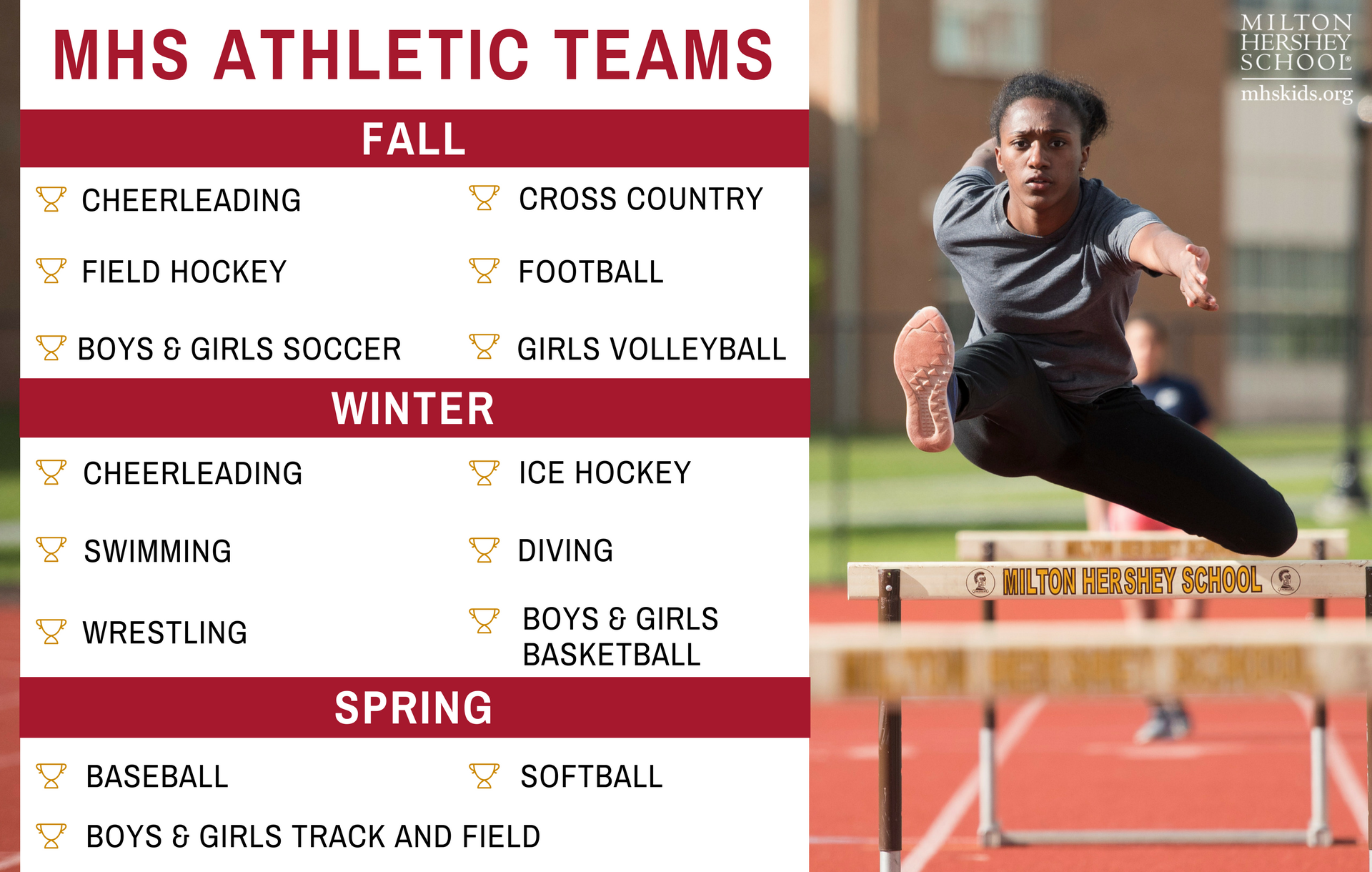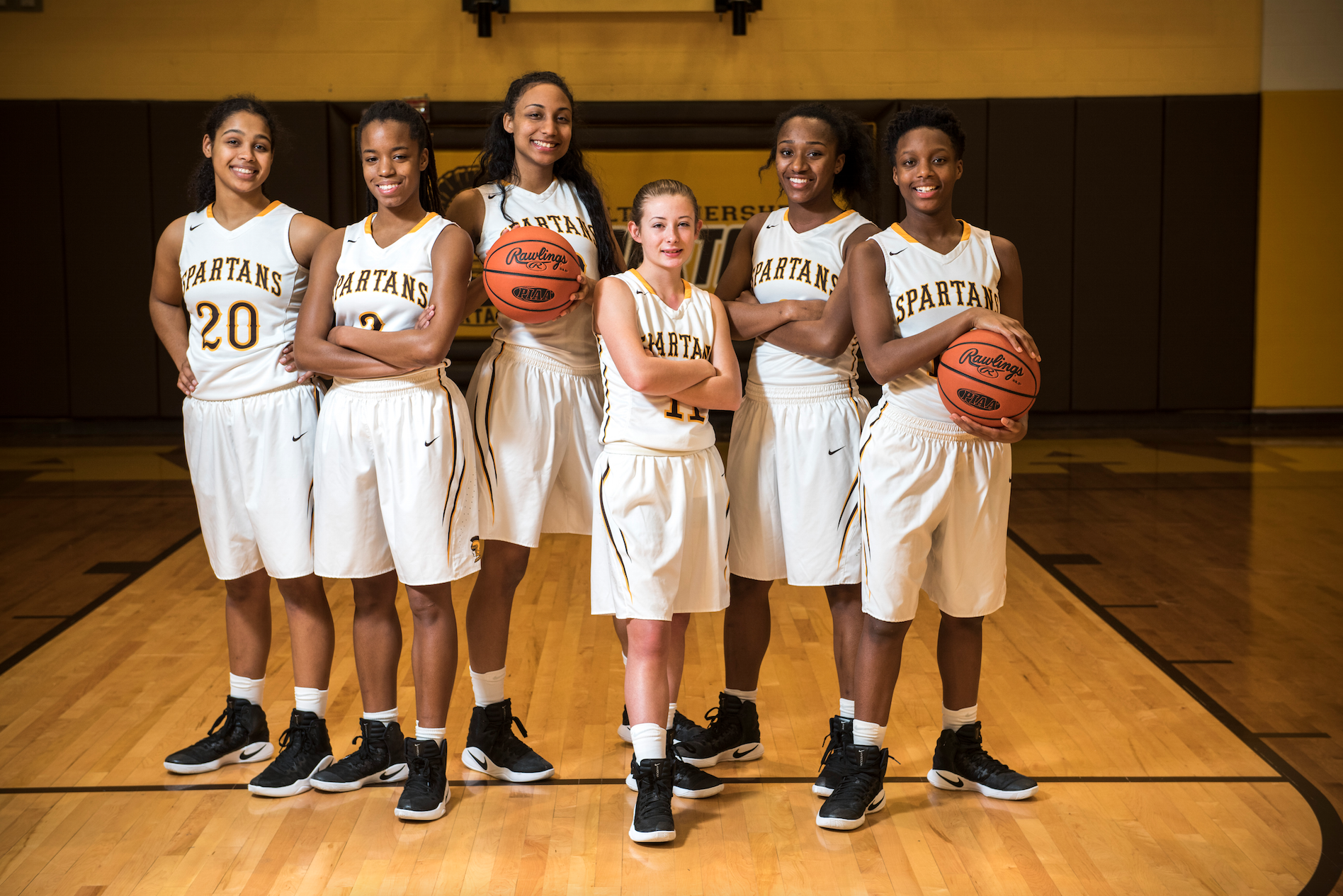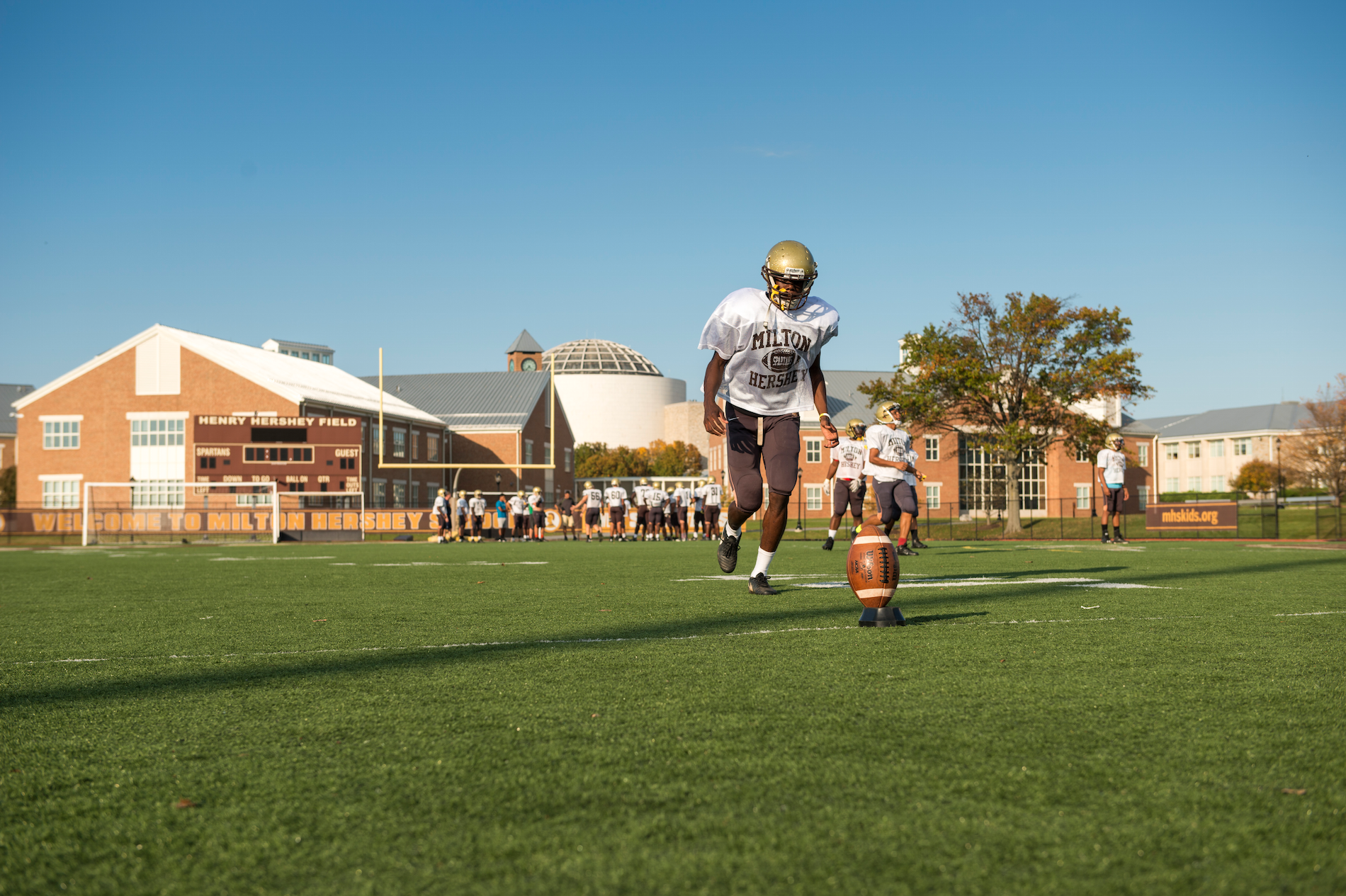The Benefits of Athletics and Sportsmanship
Whether it’s a competitive Friday night football game, intramural sports with elementary students, or after-school fitness and conditioning exercises, athletic programming teaches students to communicate with others, create goals, and stay active.
According to The Aspen Institute, children who play sports are eight times as likely to be active when they turn 24 compared to kids who don’t participate in athletics.
At Milton Hershey School, approximately 425 students participated in PIAA interscholastic competition during the 2016-17 school year after trying out for one of the school’s 14 sports teams.
“We try to involve as many students as possible [in our athletic program] because we think there are so many benefits, regardless of their ability level, to their participation,” said MHS Athletic Director Bob Guyer.
By working as a team to achieve their personal best, student-athletes can get a taste of victory—such as the girls volleyball team winning its first-ever division championship, the wrestling team setting its sights on the district championships, or an MHS junior winning the state triple jump title.
However, learning about defeat is a valuable lesson as well. Learn more about the life skills MHS students gain through athletics!
Balancing Academics and Athletics
At MHS, athletics have a positive impact on students’ academic performance. MHS coaches promote the mindset that they are students first and athletes second.
“Sports have a profound influence on students’ academic responsibilities,” Guyer said. “For some of our student-athletes, their participation in athletics motivates them to invest in their education.”
Not only do student-athletes learn how to manage their time and be attentive in class, but they must work with coaches to monitor their grades and ensure they are meeting the school’s athletic eligibility policies—which are more challenging than the PIAA eligibility policies.
“We have a simple, consistent message that we ask our coaches to provide student-athletes: Pay attention in class. Be respectful to your instructors. Appropriately finish your homework in a timely fashion,” Guyer said.
MHS coaches receive weekly updates about athletes’ academic performance and warnings if grades start to slip. Students learn that academics and sports are intertwined, and their teachers, houseparents, and coaches work together to help them balance their priorities.
Sportsmanship and Life Lessons
Sportsmanship is an essential part of the athletic program at MHS. Every year, MHS student-athletes have a breakfast with their rivals after the annual Cocoa Bean game to show respect and build connections with their opponents.
“We emphasize sportsmanship, and we encourage them to accept victory and defeat graciously and modestly,” Guyer said. “Students learn from their successes and their failures.”
Along with good sportsmanship, athletics promote necessary life skills such as time-management, mutual respect, teamwork, and critical thinking. As MHS student-athletes develop these traits and build their character, they often are recognized for exemplary sportsmanship across the greater Harrisburg and Hershey area.
In 2016, the boys wrestling team was awarded the 2016 Sportsmanship Award by the Greater Harrisburg Chapter of Wrestling Officials.
“It’s important that our athletes represent not only their team, but the entire athletic program and school community,” Guyer added. “We want them to always demonstrate respect for their teammates, coaches, opponents, officials, and all participants.”
Community and Support
One of the most exciting aspects of sports is the community and family dynamic. To stay motivated and energized, MHS student-athletes rely on support from their peers and adults on campus.
“Because we’re a residential facility, our student-athletes are a distance away from their family,” Guyer explained. “We rely on each other to create a family atmosphere and community involvement. Our student body, adults, and alumni do a great job of supporting our athletes from season to season.”
Throughout their high school athletic career, MHS student-athletes thrive in this type of supportive community. However, when they graduate, many of these students become first-generation college athletes who are playing sports at a level that’s much different than high school.
“Once students graduate from MHS, they still need some direction and support from time to time,” said Guyer. “Fortunately, a lot of our student-athletes are willing to reach out and ask for guidance. We want them to, because we still care about them just as we did when they were students.”
Thanks to the life skills students gain through athletics, they have the ability to make a profound difference in their community. Whether MHS alumni are coaching young adults and showing them how to believe in themselves, or living out their dream in the NFL, the MHS community is always supporting them!





